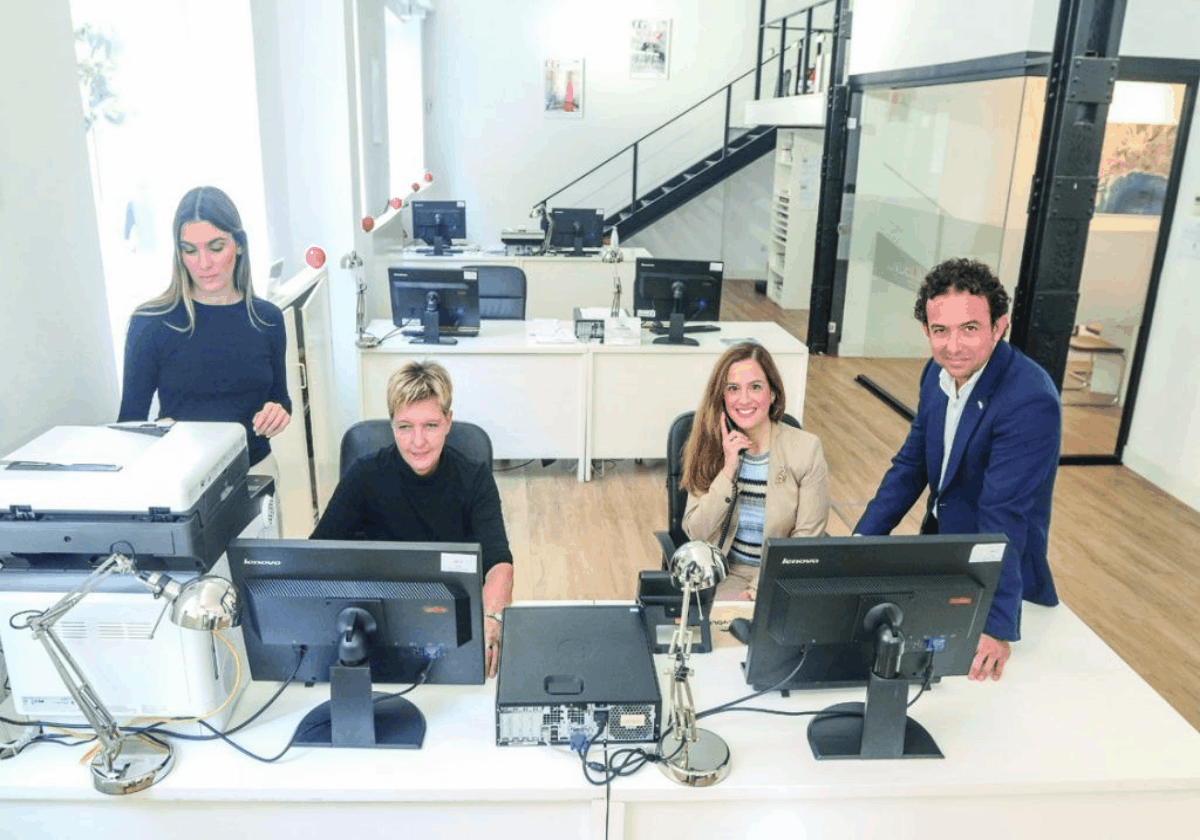International technology business boom in Malaga helps boost other sectors too
Consultants, lawyers, international schools, real estate agencies and office furniture stores are just a few of the traditional local sectors that are benefitting - but there is one major hurdle for others... the language
What impact has the technology boom had on Malaga's economy? Can we measure the wealth and employment generated by the commitment of large companies such as Google or Vodafone to the city, the success of local companies such as Freepik or BeSoccer, or the arrival of hundreds of technology professionals with high purchasing power? In the absence of any research entity to tackle these questions with hard data, what we have for now are indications of this positive impact.
One example: it is known that Malaga's TechPark already generates 8% of provincial gross domestic product )GDP). Another is that Malaga city now has 20,000 workers in jobs with a high technology component when ten years ago there were less than 9,000. In fact, Malaga is the Spanish city where technology-related employment has grown the most. Another point is that the number of companies active in the IT and telecommunications sector has risen from 634 to 1,081 (a 70% increase) in the last decade. However, the effect of this technological revolution has created ripples way beyond the industry itself: some of the traditional business and service sectors of Malaga's economy are also benefitting from the demand for services and products from these tech companies and professionals. Not only that, but they too are transforming and modernising along the way to meet the new demand.
From office furniture shops to consultancies, law firms, offices and coworking spaces, real estate agencies, architects and interior designers to international schools: the manna from tech heaven is feeding a wide range of companies in Malaga. This is how Miriem Diouri puts it as founding partner of MDG Advisors, a local professional services firm whose clientele is 95% foreign-owned companies: "There is a lot of talk about technology companies and their development in Malaga, but little about the subsidiary sectors that have grown, adapted and modernised thanks to the technology sector. This is something that we have experienced first-hand and that I see in many other traditional companies that have changed to adapt to the demand of these large companies and professionals coming from abroad."
The economy and the city have changed a lot since the pandemic. There is a whole series of new needs that did not previously exist in Malaga. The 'coworking fever' (the demand and struggle for such spaces in Malaga), for example, is directly linked to the arrival of digital nomads and also to the shortage of offices adapted to the tastes of the technology companies that want to set up in the city. The very importance that these companies attach to their workspaces has rubbed off on local businesses that, in turn, has multiplied the demand for interior design services and high-end office furniture. Then there are the law firms and professional services companies that have turned to specialising in serving foreign-owned companies.
The ripples do not stop at these business-to-business deals as it is not just companies, but people who are settling in Malaga, and these people need services too. International schools have seen their foreign student intake increase dramatically, real estate agencies and architecture firms are being asked to cover their housing needs and, in general, premium businesses (gyms, restaurants, cafés and furniture shops) are benefitting from the arrival of these new residents with high purchasing power.
Barrier to entry: language
There is one basic barrier to entry for this demanding and desirable clientele: language. Only companies able to communicate and provide services in perfect English can access this niche market. Neither is it just a question of language: you have to be up to the mark in every way, from corporate image to professionalism in your dealings or being up to date with quality or sustainability certifications, as the standards to which these companies and professionals are accustomed are very high. "It is also a question of empathy and flexibility to connect with people of different nationalities and cultures: the way of relating is different," says Douri. She firmly believes that the key is in the team you have: "It has become necessary to have professionals in the traditional sectors who are able to provide services in English and have knowledge of dealing with the international customer."
For the president of CEM confederation of employers of Malaga, Javier González de Lara, "the development of technological Malaga is generating and will generate a very clear, very interesting impact, especially in the medium and long term. Firstly, it is a strategic commitment to the diversification of our productive fabric, something that we business organisations continually insist on. On the other hand, Malaga's capacity to attract investment in this sector not only means the arrival of new projects, but also the expansion of existing ones, with possibilities for growth and the resizing of very positive and necessary companies."
"Growing alongside such a diverse and internationalised sector of economic activity creates synergies and enriches us culturally, as individuals and as companies."
Javier González de Lara
CEM President
The impact on the labour market is evident, González de Lara points out, "demanding highly qualified professionals." Also its "dynamising effect in the field of training, as a response to this demand for specialised profiles." Furthermore, the business activity of these companies, especially the larger ones, generates "a tractor effect [sweeps through other business areas in a positive way] on our business fabric, not linked to a specific sector, but in a transversal way, in matters of employment, human resources management, innovation, sustainability, CSR [corporate social responsibility] etc." He continues: "And it also has an influence, of course, at a social level. The fact that we are growing alongside such a diverse and internationalised sector of economic activity creates synergies and enriches us culturally, as people and as companies. And I would also like to highlight the important ambassadorial role of these companies in the promotion of Malaga."
Foreign-friendly professional services
MDG Advisors is a tax and accounting consultancy firm set up 12 years ago from a "need for inner peace" by Miriem Douri, its founder. "I was working for a large consultancy firm and decided to set up something on my own so that I could stay in Malaga and follow my own schedule." Since then the growth of the company has been "exponential", and the team is currently made up of 15 people covering different areas of professional services: labour, tax and accounting consultancy. The key to this growth has been "the push from the technology sector and the arrival of international companies belonging to this sector."
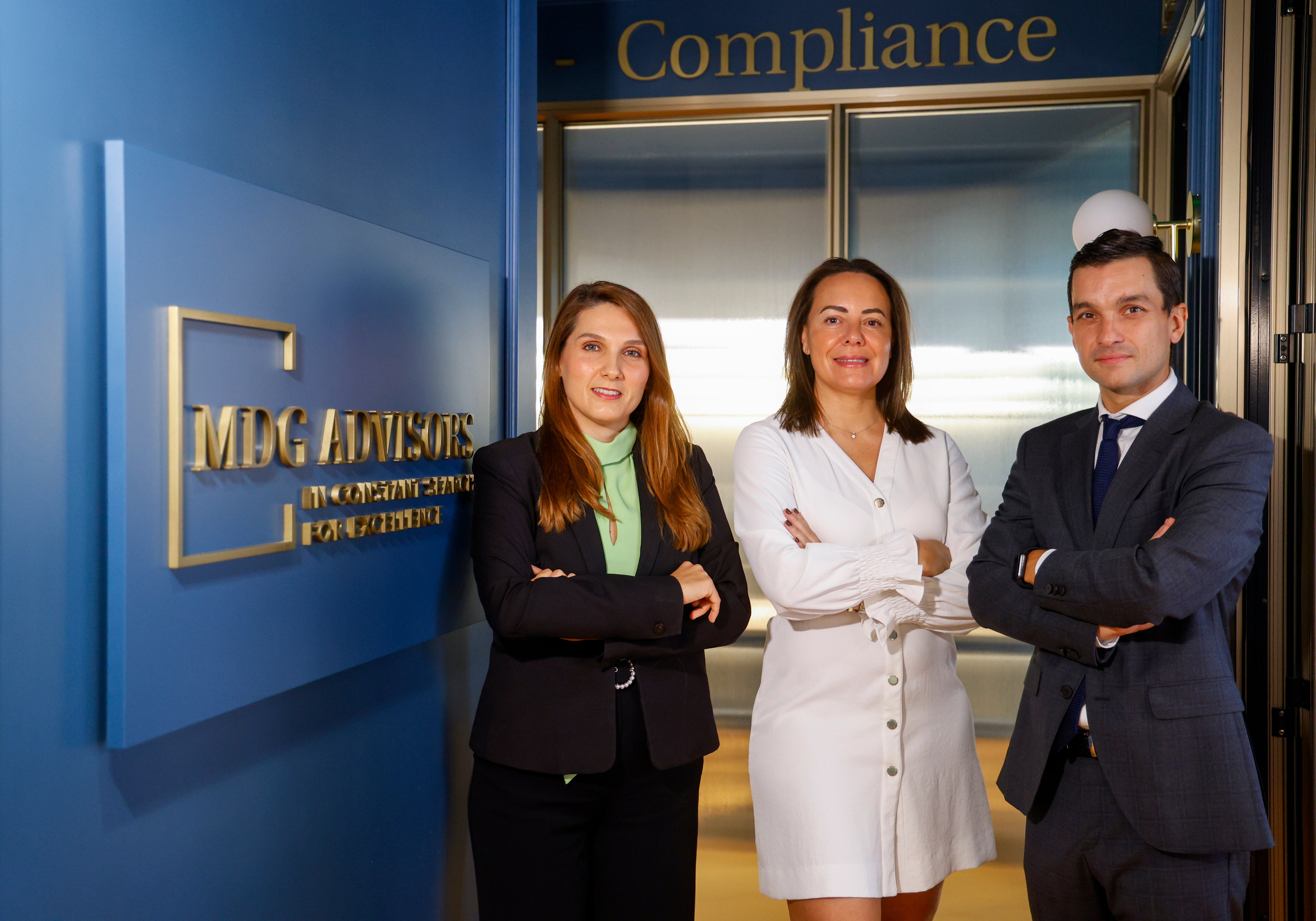
Zoom
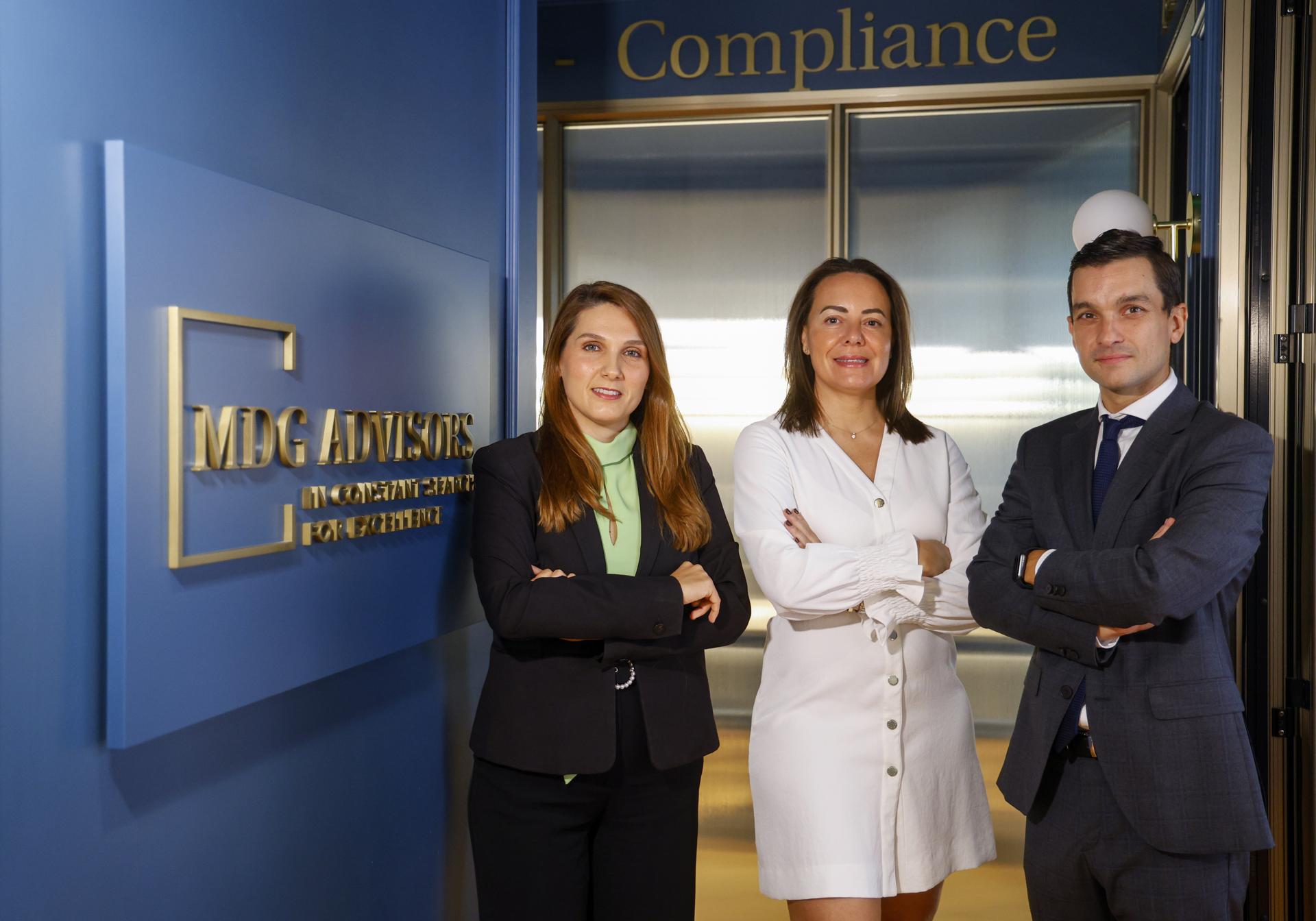
The company focused from the beginning on international companies, as Douri came from working with such a client profile. "We responded to a very clear demand in Malaga: the demand for high quality, specialised professional services in English." The company currently has 450 international clients from over 30 nationalities. Among them are not only technology companies, but also many investment funds and large multinationals from other sectors. "Our motto is 'Local expertise, international mindset'," says the founder.
The firm would not have been able to ride this wave if it had not been able to count on professionals capable of working for this type of company. On this point Douri highlights the work of the University of Malaga (UMA). "15 years ago it was very difficult for us to find candidates with the technical level and the level of English we needed. The UMA has been able to adapt to meet this need. The degrees in Economics, LADE [business management and entrepreneurship] and the joint honours degree are taught in English and the students leave with an excellent level," she said.
Douri says that 'foreign-friendly' companies, like hers, have spontaneously formed a network of trust and recommend each other. "We have grown a lot through B2B collaboration. For example, we act as a kind of back office for large law firms that need a firm with a local presence to take care of their day-to-day business," she explained. "When an international company arrives in Malaga, along with its executives, they need multiple pointers for getting settled: which school to choose, which bank to work with, how to find a house, which consultancy they can trust..." She also collaborates with institutions that provide 'softlanding' services such as Malaga city council, Malaga TechPark or the Junta's Andalucía TRADE agency.
The rise of international schools
Foreign technology companies setting up in Malaga bring with them highly qualified managers and employees who, in many cases, come with their families. So one of the factors that make Malaga attractive to this profile of foreign workers is precisely the fact that it has a good range of international schools. It is therefore not surprising that this type of school has seen a significant increase in the number of foreign students in recent years, and that new schools have opened, such as Yago School Málaga, which has occupied the facilities of the former Unamuno school since this academic year.

Zoom
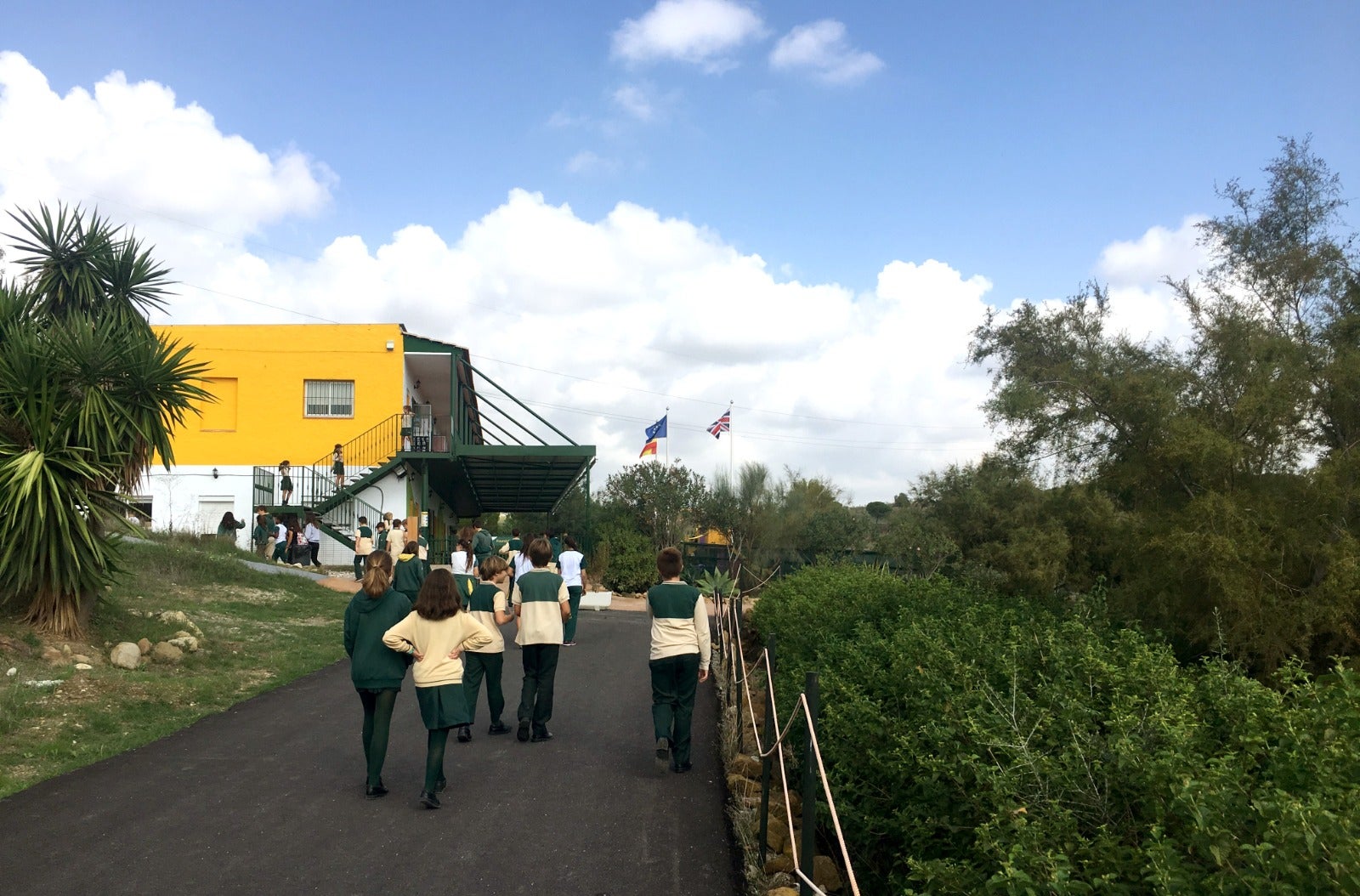
The Novaschool group owns three private international schools in the province: Novaschool Añoreta in Malaga city, Sunland in Cártama and Novaschool Benalmádena, with a total of 2,320 students this academic year. "Around 20% of these students are foreigners: they are children of parents who are managers or independent professionals who choose Malaga or surrounding municipalities as their city of residence," said the owner and president of this educational group, Francisco Barrionuevo. "In the last 20 years we have built up an educational offer of public schools at the level of a big city like Malaga. This is highly valued by these employees in the technology and knowledge sector who seek educational excellence for their children," he said. The businessman was keen to highlight the important role played in the tech ecosystem by companies like his, which "although we are not pure technology companies, we provide a high value and high quality service to these employees of knowledge who come to live in Malaga."
Director of the British School of Malaga, Stefan Rumistrzewicz, also speaks of a "remarkable growth in recent years due, above all, to the arrival of a large number of international families." He added: "In the last five years, our school has undergone a drastic transformation and has gone from being a medium-sized school composed mainly of local families (approximately 82%), to being the benchmark international school in the city of Malaga." The swing is significant as now, of the approximately 1,100 pupils, only 46% of the student body is of Spanish nationality. The remaining 54% is divided between 10% British, 5% American, 4.5% Ukrainian, 3.3% Polish, 2.8% Italian and so on to make up a melting pot of more than 50 nationalities. The school has collaboration agreements with several technology companies and, since 2020, has been organising so-called 'virtual open days'. These are online open house sessions in response to the high demand for information from families who are still outside of Spain and wish to move to Malaga.
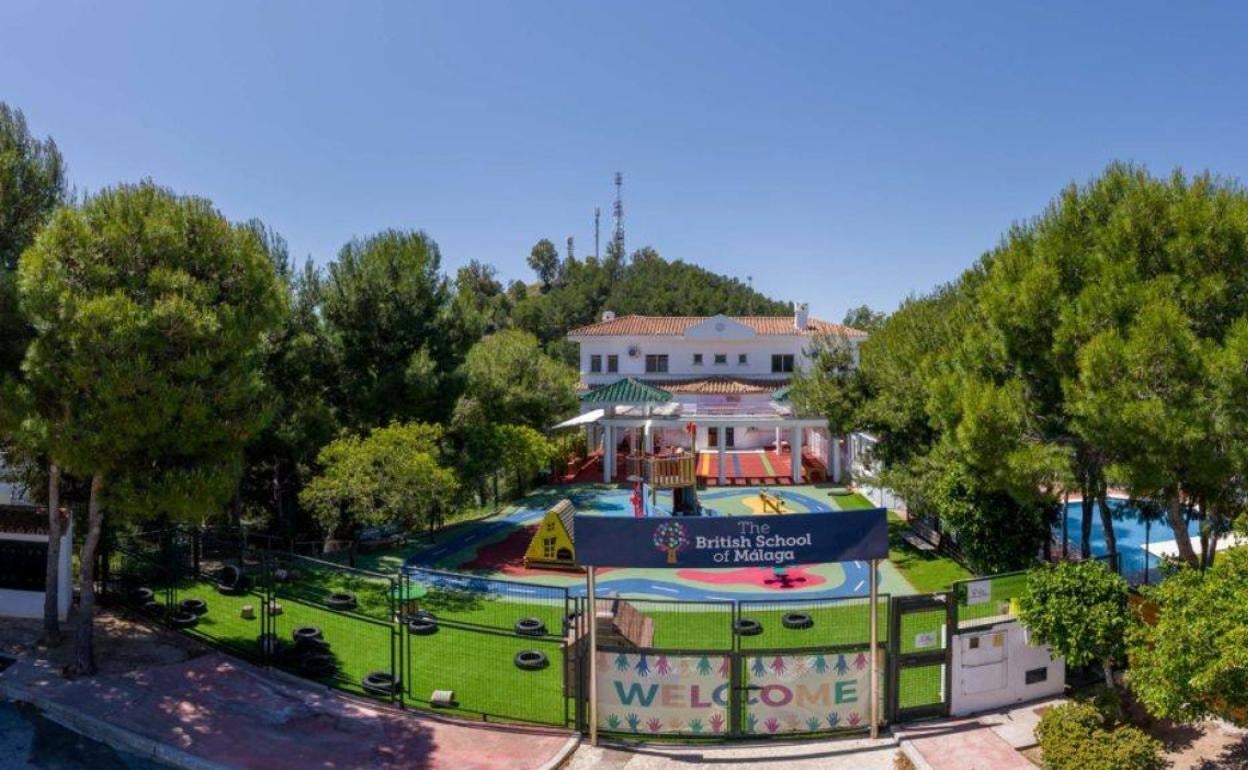
Zoom

"In recent years the countries whose presence has increased the most are the United States, Poland, Ukraine, Romania, Morocco, Hungary and China. The change in the demographics at the centre has been very enriching because it has become a multinational community whose common language is English," said Rumistrzewicz.
High-end housing
In the public demonstrations protesting over the right to housing, voices have been heard blaming the technology companies and their employees for "taking away" housing from the people of Malaga. The reality is that the effect they can have on the real estate market as a whole is limited, but there is a segment of it, the most exclusive, which is feeling the influx of executives and professionals with high purchasing power. "I would say that 30% of the international clients who are buying properties for primary residences in Malaga are linked to the technology sector. If we are talking about buying, they are senior managers or partners; expat employees tend to look for rentals and then, if they feel comfortable in the city, they buy. Several local entrepreneurs in this sector are also very active," said the director for luxury estate agency Engel & Völkers agency in Malaga, Mario Garnica. Their preferred areas within the city boundary are the Centre and the East Zone. Beyond the city limits there are also areas that are becoming more attractive for this type of client, such as El Higuerón in Benalmádena and Rincón de la Victoria.
This is a new buyer profile that has rejuvenated Malaga's prime real estate market. "The people who bought single-family homes in the eastern area tended to be older Spaniards. Now we see a lot of families with children. For example, we have just sold a completely refurbished villa in Cerrado de Calderón to a family coming from Silicon Valley," said Garnica, who points out that there is a "marked shortage" in this property segment, especially for renting.
Besides the real estate agencies, there is a whole constellation of professionals and businesses revolving around this dynamic, high-end housing market, including interior designers, architects, decorators, landscapers, furniture shops, maintenance and gardening companies, among others.
A before and after in the office market
Malaga's office market has experienced a before and after 2021, which is when Google chose the city to open an IT engineering centre focused on cybersecurity. The call for office space effect triggered by this announcement multiplied the demand for workspaces in a city where the supply was scarce and outdated, especially in the city centre, which is where most technology companies prefer to set up. The market has taken some time to react, but today there are already several first-class office buildings under construction with an expected opening date of 2025. In the meantime, coworking spaces have sprung up like mushrooms after the rain: flexible work spaces that have served both to speed up the arrival of foreign companies and to accommodate digital nomads.
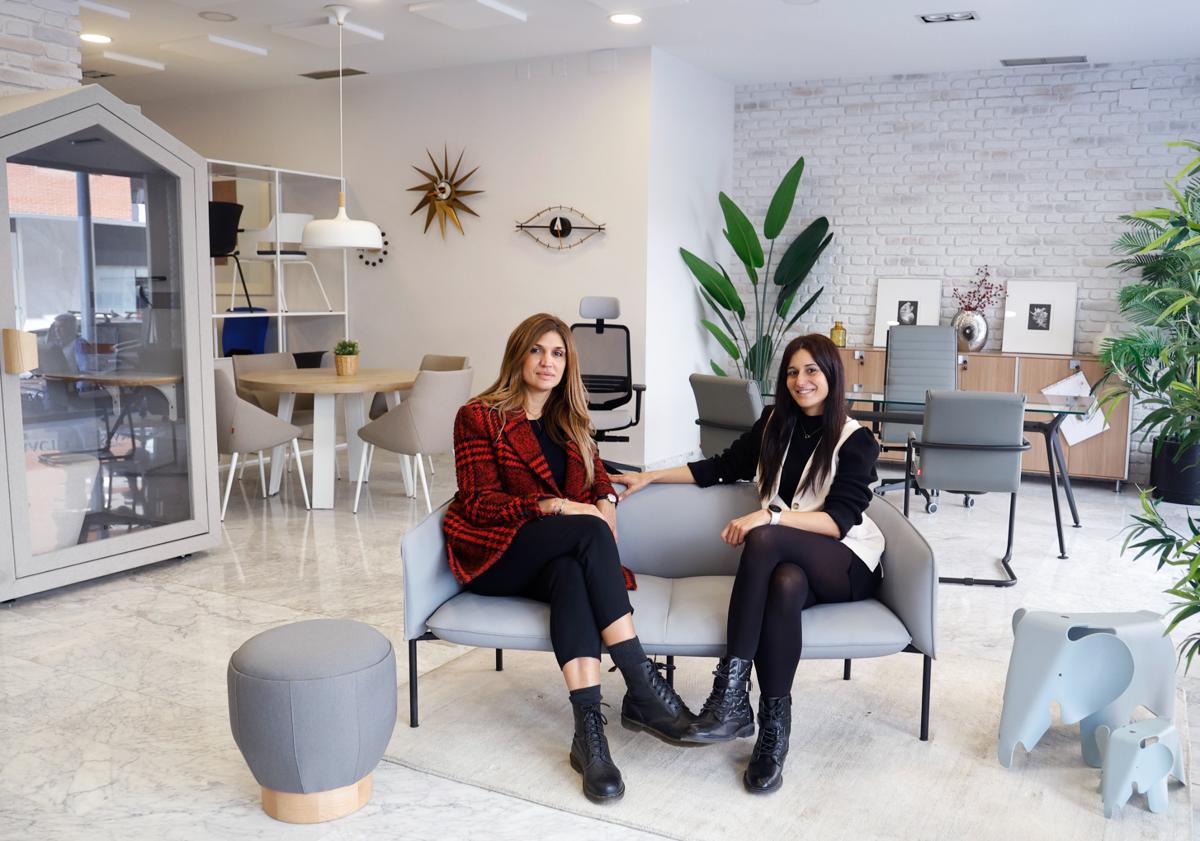
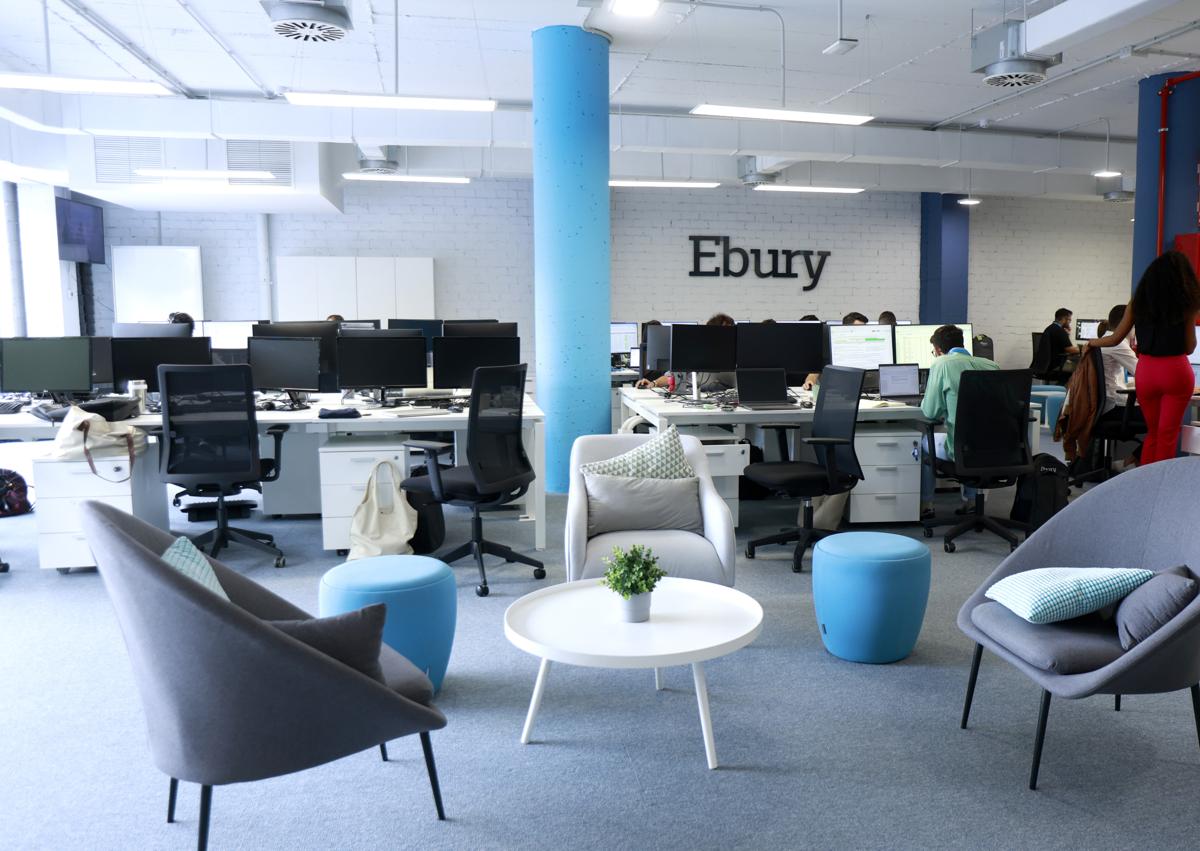
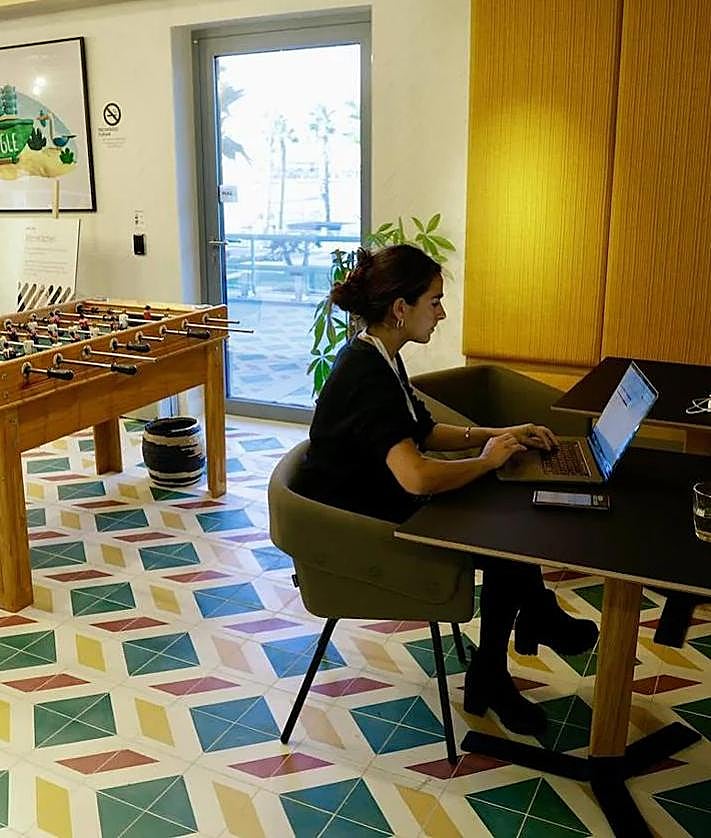
It is well known how much importance technology companies place on the comfort and design of their workspaces. In Malaga, until the arrival of Google and other multinationals, it was not at all common for local companies to be ambitious in the interior design and layout of their offices. So, there are Malaga businesses specialising in office furniture that have been able to rise to the demands of these companies and have become their local, hands-on suppliers.
This is the case with Ofiburo, a family business with 51 years of history that has decked out some of the most spectacular workspaces in the city. Its head of administration, Mavi Lillo, said: "The change in mentality is very noticeable: companies in Malaga used to spend the minimum. And suddenly the multinationals come and they want the top brands, the most ergonomic chairs... they don't spare any expense because they want the best." To give just one example, their best-selling chair is a Haworth model with a patented lumbar support system that costs 1,200 euros. Their customers are not just companies: "We also get a lot of foreigners who want to set up their own workplace at home, and they don't skimp: they want to be as comfortable as possible."
Lillo explains that the example of Google and the rest has caught on among local businesses and Malaga offices "are being remodelled in leaps and bounds." Local companies have been convinced of the need for modern, open-plan and comfortable facilities for two main reasons: to provide an attractive and comfortable workspace for employees and to improve their image. In the new offices, elements such as office spaces, relaxation areas with beanbags and sofas, fall-and-rise tables, arcade video game machines or table footbal, soundproof booths, to name a few, are essential. Taking advantage of this trend, Ofiburo is investing in its interior design division, with which it carries out comprehensive office refurbishment projects. "It has been a great boost for us," said Lillo.

